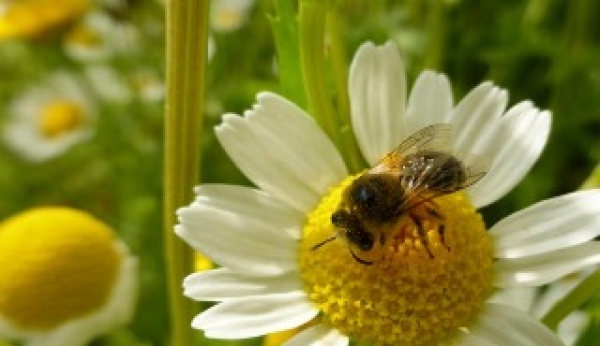Supporting and enhancing pollinators could help stabilise the production of important crops like oilseeds and fruit, reducing the sort of uncertainty that causes food price spikes, new research has shown.
Scientists at the University of Reading analysed years of data on the poorly understood effect of pollinators on crop yield stability. They found there was 32% less variation in the yields of plants visited by bees and other pollinators than those grown in absence of pollinators.
The study, published in the journal Ecology Letters, suggests that pollinators can help to mitigate supply issues and market shocks that cause global price spikes, like those being seen this year, by holding food supplies steady.
The publication marks the start of Bees’ Needs Week 2022 (18-24 July), a UK Government-led campaign championing pollinators and their benefits. A launch event led by University of Reading scientists is taking place today (Monday 18 July) at the Tower of London, where a Superbloom attraction made up of 20 million wildflowers in the moat is on display to the public all summer.
Continue reading at University of Reading
Image via University of Reading


